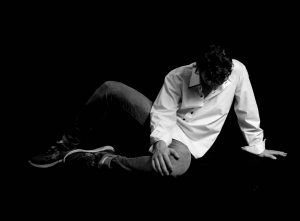Is Heroin Withdrawal Life-Threatening?
When you’re addicted to heroin, the drug affects the body and the brain in powerful ways. Attempting to quit triggers a long list of painful and distressing physical symptoms and cravings. Heroin withdrawal symptoms are often compared to a bad case of the flu – but under some circumstances, withdrawal can be even more dangerous.
What Causes Withdrawal?
Heroin belongs to a class of drugs called opiates – strong painkilling drugs that attach to natural opioid receptors in the body and brain. When activated, these receptors block sensations of pain and depress the central nervous system, which causes feelings of pleasure and relaxation. Heroin also acts on the brain’s pathways for pleasure and reward, so that the “high” from taking heroin causes users to crave more.
When a heroin user stops taking the drug, the body’s opioid receptors suddenly come up empty. The body responds to the absence of heroin with a long list of symptoms that show how heroin affects all the systems of the body:

Nausea, depression, and body aches are common heroin withdrawal symptoms.
- Nausea and vomiting
- Diarrhea
- Chills
- Fever
- Anxiety
- Paranoia
- Depression
- Body Aches
- Runny nose
Withdrawal Symptoms Can Sabotage Recovery
Heroin withdrawal symptoms usually begin within 6 to 12 hours after the last dose, and peak within 3 days. The short-term symptoms typically subside within a week or so. But some symptoms and cravings can persist for several months or longer, causing some users to return to using heroin just to avoid them. That’s why medications such as methadone and Suboxone are used during medically assisted withdrawal to stave off symptoms and help people focus on their long-term recovery.
For some users, though, medically assisted withdrawal is not an option, and they experience the full range of withdrawal symptoms. For generally healthy people, the physical symptoms of heroin withdrawal can be managed similarly to flu-type symptoms, with over-the-counter medications for pain, fever and stomach upset being provided.
Withdrawal Causes Physical Symptoms
But people who have been using large quantities of heroin for a long time may have a harder time coping with those symptoms. Addiction often leads to poor self-care and poor nutrition, which can make withdrawal symptoms worse.
Severe vomiting and diarrhea can lead to dehydration, which can stress all systems of the body and cause new symptoms such as an irregular heartbeat. Constant digestive distress means a lack of appetite and sudden weight loss. Individuals with chronic diseases may not be able to take needed medications, which can cause potentially life threatening health crises.
Withdrawal Has Psychological Effects Too
Heroin withdrawal also causes severe cravings for the drug and a variety of psychological symptoms such as anxiety or depression. During heroin withdrawal, many people report experiencing overwhelming thoughts of suicide – and some attempt it.
Feelings of hopelessness and despair also surface, which can prompt people to do ill advised or dangerous things that can harm themselves or others. They may start using heroin again just to avoid these symptoms, or try other drugs, which can create new dependencies or cause life-threatening overdoses.
The acute symptoms of heroin withdrawal typically subside within a week or so, but the stress of withdrawal and its impact on the immune system can leave the body weakened and vulnerable to infections or other kinds of illnesses. As such, self-care becomes especially important during and after withdrawal.
Professional Help Supports Recovery
Not everyone experiences heroin withdrawal in the same way, and factors such as overall health, age, and the extent of a person’s addiction can affect how long and how severe withdrawal might be. For those reasons, addiction experts recommend withdrawing from heroin with some form of professional support.
That support can include options such as the round the clock supervision of an inpatient rehab facility, or daily check-ins with a counselor or doctor at an outpatient rehab. In this way, it’s possible to identify problems and get help quickly if any arise.
Have you tried to withdraw from heroin – without success? Are you looking for ways to stop your addiction? We’re here to help. Call us at 888-602-1971(Who Answers?) for the answers you need right now.




